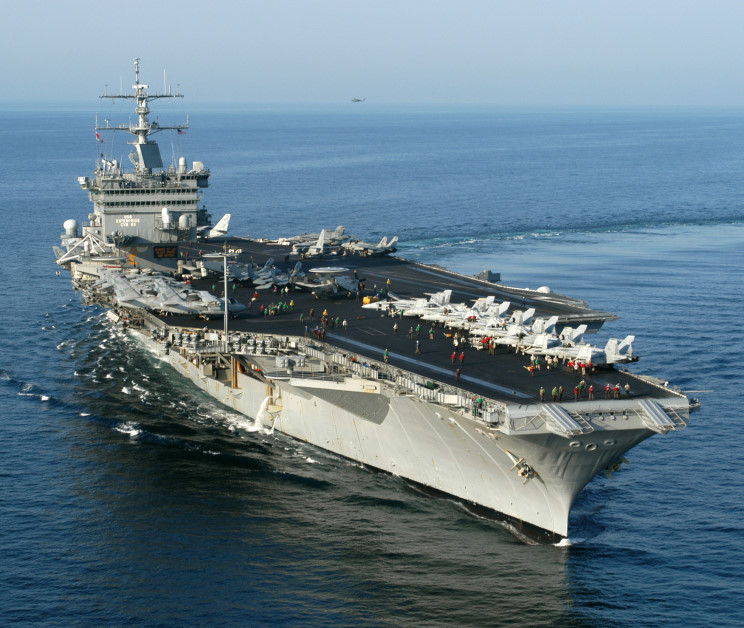The USS Enterprise recently arrived at Norfolk, Virginia after making its final deployment. The first nuclear powered aircraft carrier, it is the oldest active duty ship in the Navy. It's reactors are being shut down now and it will soon be scrapped out. It hardly seems a fitting end to a ship with such a glorious history, but after removing the reactors it would be cost-prohibitive to try to repair it and turn it into a museum as some wanted. The reason this matters to me is that I served on board the ship from 1968-1971 making two tours to the Tonkin Gulf off Vietnam. I have a lot of fond memories of my days aboard the ship.
A primary reason for its decommissioning is the lack of parts available for repair. It is the last of its class, and many of the parts needed to keep everything running are not produced anymore. It is very expensive to buy one-off parts even with a military budget. Some things simply aren't available at any price and must be hand-made by people on the ship. When you are running flight operations in support of troops on the ground you can't stop what you're doing waiting for someone to ship you a part they first have to make from scratch. You find ways to get the broken part fixed to continue the operation. Even when I was on the ship there were times when things had to be fixed on the spot to keep the operation running. You just had to learn to improvise.
What a great lesson for a small business owner. You can read all the textbooks on business management you want, but eventually you will encounter something that isn't covered in the books. You can attend every workshop available, but one day a customer will present you with a challenge or a problem that wasn't covered in any of them. A natural disaster may hit your business forcing you to scramble to keep your business open and serve your customers during an exceptionally difficult time in their lives. Small business success is often determined by how well you can improvise and make things work when it seems everything doesn't want to.
During normal times businesses need systems to make things happen. Many small businesses struggle because they are always dealing with the same issues and having to make the same decisions time after time because they never developed the proper systems to address those issues. Systems and policy manuals are needed to maintain consistent quality in the normal course of business. Without such systems your business will be much more difficult to manage than it needs to be. But, during times with unusual challenges your systems may not be adequate to solve those challenges. it is here the small business needs to be flexible and move outside its normal way of doing things.
This gives you an incredible opportunity to surpass your larger competitors. These large box companies are managed by people who often do not have the authority to bypass company policies that were set by people in distant places. "I'm sorry, but that's company policy" is the only answer they know to give as if that is supposed to satisfy a disgruntled customer. I often compare my experience on the Enterprise to the years I owned a bass boat. It took miles to turn that ship around; it only took me a few yards to turn my fishing boat 360 degrees. Small businesses can make corrections much faster than their larger competitors, and that gives you an advantage they will never have over you.
Look for ways to satisfy your customers. Find new ways to resolve problems and challenges. Challenge everyone in your organization to think creatively every day. Regardless of the challenges, find ways to make it work. You can read more in my recent e-book Mistakes: Avoiding the Wrong Decisions that Will Close Your Small Business.

No comments:
Post a Comment